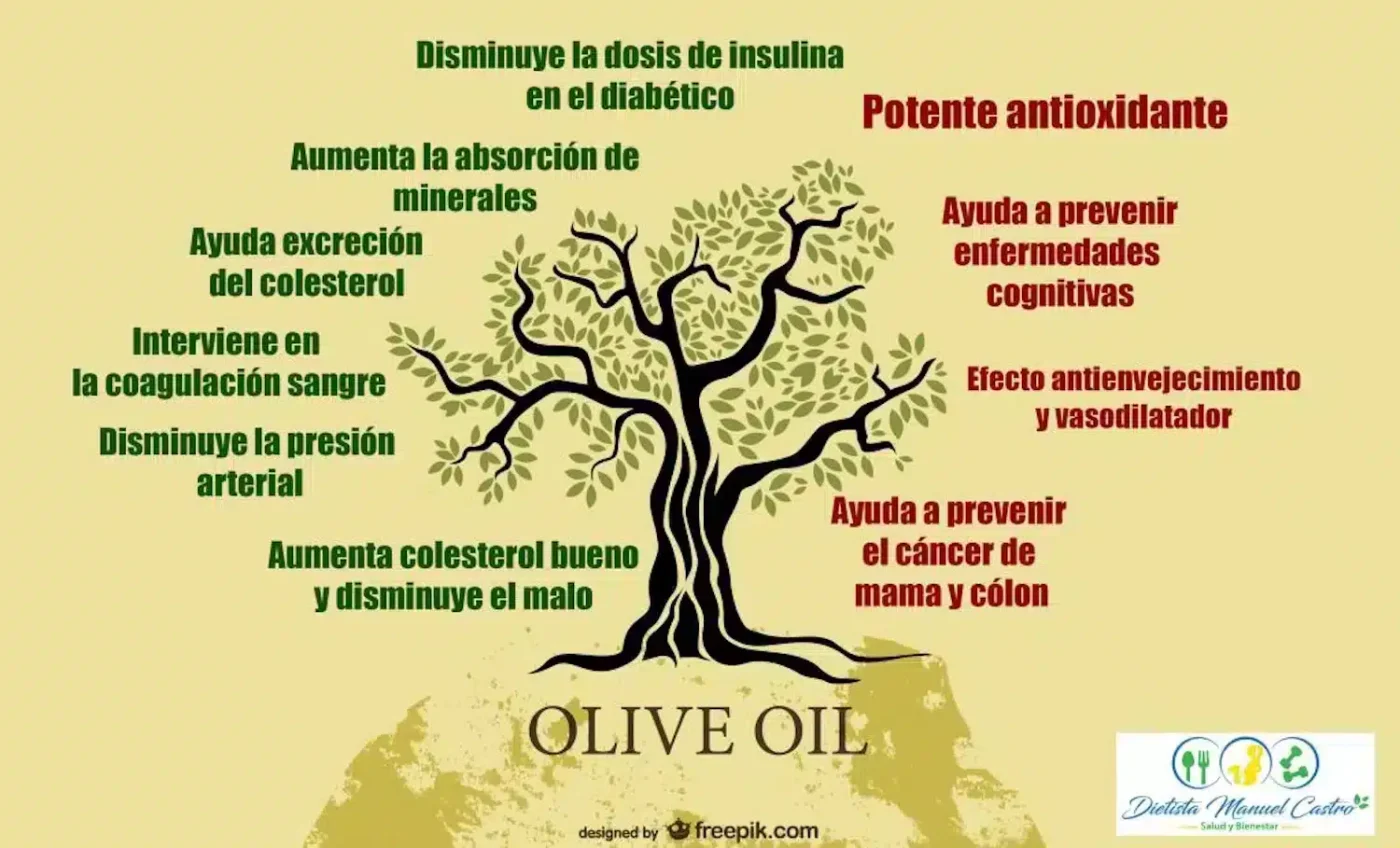
Olive oil has many properties, especially Extra Virgin Olive Oil, and its consumption provides numerous health benefits. In this sense, over the last 60 years, many of these properties have been discovered and scientifically proven.
The first properties were related to its high percentage of oleic acid and its positive effect on the cardiovascular system. However, in recent years, other properties have been identified attributable to other compounds. In particular, these other micro-components are said to have a great antioxidant capacity, which would reduce many oxidative processes associated with numerous pathologies.
The consumption of saturated fats is linked to a high incidence of cardiovascular diseases. On the contrary, most olive oil is made up of monounsaturated and polyunsaturated fats, the basis of olive oil’s properties.
The consequence is that olive oil reduces levels of bad cholesterol (LDL and VLDL) and increases levels of good cholesterol (HDL). In fact, this cardioprotective property was the first to be discovered in the famous Seven Nations Study on olive oil as a source of healthy fat in the diet.
Thus, less plaque, more “circulatory space” for blood, which lowers blood pressure. And indeed, it has been shown that regular consumption of olive oil in the diet has a reducing effect on both maximum (systolic) and minimum (diastolic) blood pressure.
These properties of olive oil can be attributed to the vasodilatory effects of the Mediterranean diet, and, with reference to olive oil, to the decrease in nitric oxide in the bloodstream caused by the presence of polyphenols in olive oil.
It has also been shown that diets with rich and regular consumption of olive oil along with the intake of vegetables, fruits, legumes and cereals improve blood glucose control and increase insulin sensitivity. These effects have been observed in both type 1 and type 2 diabetes.
The incidence of some types of cancer is closely related to diet. In fact, several scientific studies have demonstrated the properties of olive oil and its protective effect against cancers of the intestine and colon, pancreas, endometrium, prostate, and breast. The average reduction in incidence observed in people with a high intake of olive oil in their diet varies between 25% and 10% depending on the type of cancer.
Olive oil’s protection appears to come from the combined action of monounsaturated fatty acids, which are more stable against oxidative processes, and the antioxidant substances present in virgin olive oils.
Olive oil’s properties also reach the digestive system, reducing gastric motility and therefore reducing the passage of gastric contents from the stomach to the duodenum. This creates a feeling of satiety, which aids both digestion and the absorption of nutrients in the intestine.
On the other hand, the presence of sitosterol in extra virgin olive oil partially prevents the absorption of cholesterol and promotes the absorption of calcium, iron, and magnesium.
Olive oil’s properties as a laxative and halitosis reducer are also well-known.
For all these reasons: its satiating effect, partial absorption of cholesterol in the intestine, and its laxative action; and although virgin olive oil has the same number of calories as any other fat (9 kilocalories per gram), it is the most recommended fat for those who want to lose weight.
It was previously believed that olive oil could help relieve the symptoms of rheumatoid arthritis, but subsequent studies have not been able to confirm this fact. However, recently published studies do indicate that consuming virgin olive oil may reduce the risk of developing rheumatoid arthritis.
The most widely accepted biological model for understanding the causes of aging is based on oxidation processes caused by free radicals. The body prevents this oxidation with its natural production of antioxidants, but as we age, the production of these antioxidants decreases.
Virgin olive oils, with their natural antioxidant content, help supplement internal antioxidant production and reduceThe effects of oxidation.
Olive oil acts on the gallbladder, ensuring its complete emptying. It stimulates the synthesis of bile salts in the liver and increases the hepatic secretion of cholesterol. These effects prevent the formation of gallstones.
Furthermore, the action of the vitamins and antioxidants in virgin olive oil has been shown to benefit liver cells. This particularly affects patients suffering from chronic alcoholism, reducing their oxidative stress.
A selection of Italian extra virgin olive oils will leave Earth in the spring of 2022 to reach the International Space Station (ISS). This was announced by the Italian Space Agency on the occasion of World Olive Day (November 26).
The four selected extra virgin olive oils from space are EVOOs of the highest quality from different regions and olive varieties. Specifically, they will be used to prepare the “bonus food,” one of the meals astronauts can choose to complement their standard diet.
The EVOOs, depending on their intensity and sensory profile, will be available to the crew to accompany a specific type of meal: meat, fish, vegetables, and one to enhance the most intense flavors.
This project allows for the launch of extra virgin olive oils into orbit to highlight the importance of Italy’s agri-food heritage and promote proper nutrition. In this sense, according to the Italian Space Agency, proper nutrition for astronauts in the space environment is a very important issue for their health on board the ISS.
And its effect can cross the placental barrier to reach the offspring. This has been confirmed by a study conducted and published in the journal Food Chemistry. Diets enriched with EVOO can modify or even increase the content of these bioactive compounds in breast milk, with potential health benefits for infants.
The best source of nutrition for infants, as it contains essential nutrients and bioactive factors (hormones, antibodies, microorganisms, stem cells, etc.). Furthermore, it provides many short- and long-term benefits for both mother and infant, and, in the case of newborns, reduces the incidence of infections and the risk of future metabolic diseases.
EVOO is the main source of fat in the Mediterranean Diet, but until now, it was unknown that the phenolic compounds in this product could become a component of breast milk and be available to infants, according to the educational center.
The results of the research showed that phenolic compounds from the diet reach the systemic circulation of mothers. Furthermore, numerous phenolic compounds and their derivatives were detected in breast milk.
Thus, nutritional interventions during pregnancy and lactation can impact the quality of breast milk and, consequently, the health of the offspring.
Numerous studies show how olive oil affects pregnancy. In particular, a recent study published in the journal Nutrition Research details its effects on maternal and fetal health, suggesting a protective effect.
Nutrition plays a vital role in the health of a pregnant woman and the outcome of her pregnancy. In fact, olive oil is an integral part of the Mediterranean diet (MD), a healthy source of monounsaturated fatty acids (MUFAs) and phytochemicals such as polyphenols. Furthermore, olive oil is linked to improved outcomes for gestational diabetes mellitus (GDM), preeclampsia, and small for gestational age (SGA) or large for gestational age (LGA) babies. There are several grades of olive oil, depending on the production method, nutritional content, taste, and aroma. These include virgin olive oil (VOO) and extra virgin olive oil (EVOO), the latter showing greater cardioprotective benefits, which could be due to its antioxidant content and anti-inflammatory and anticancer properties.
The results of this study show that EVOO, in particular, and olive oil, in general, are associated with a reduced risk of maternal and fetal effects, including preeclampsia, GDM, SGA, and LGA.
Important Note: aceitedelcampo.com promotes the consumption of extra virgin olive oil for its culinary qualities and health benefits. However, no medication or current treatment should be replaced without the guidance of a healthcare professional.
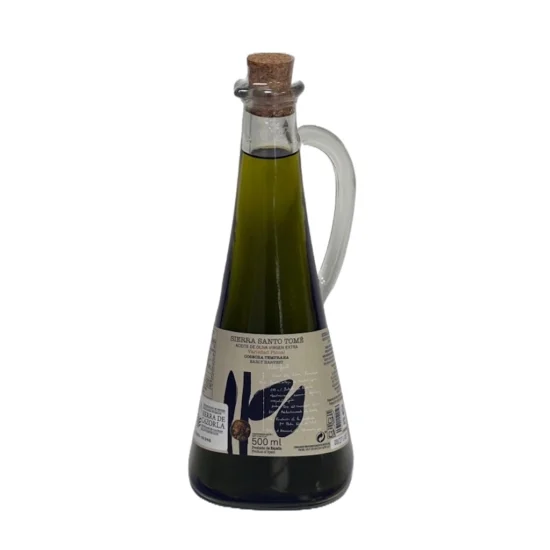
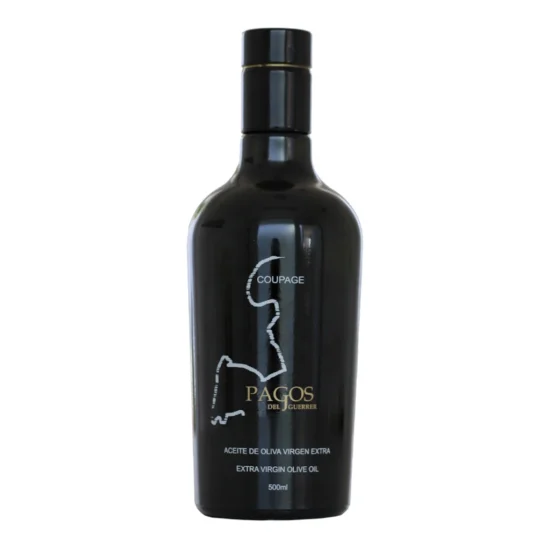
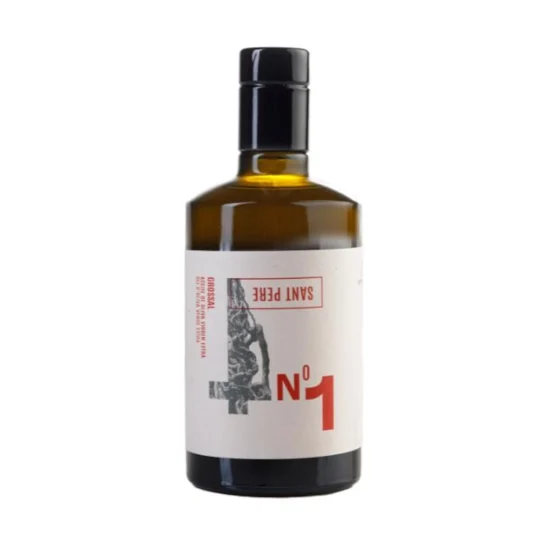
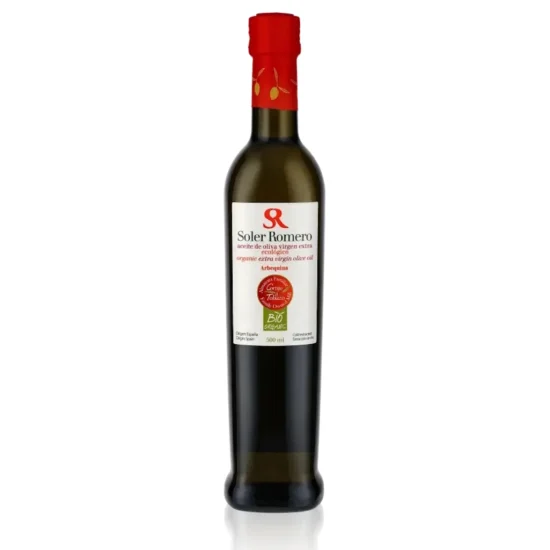
ALZAYT EXPORT SL
info@aceitedelcampo.com
C/ Eduardo Bosca 19, 2-5
46023 Valencia
Subscribe and receive a coupon by email for your next purchase.